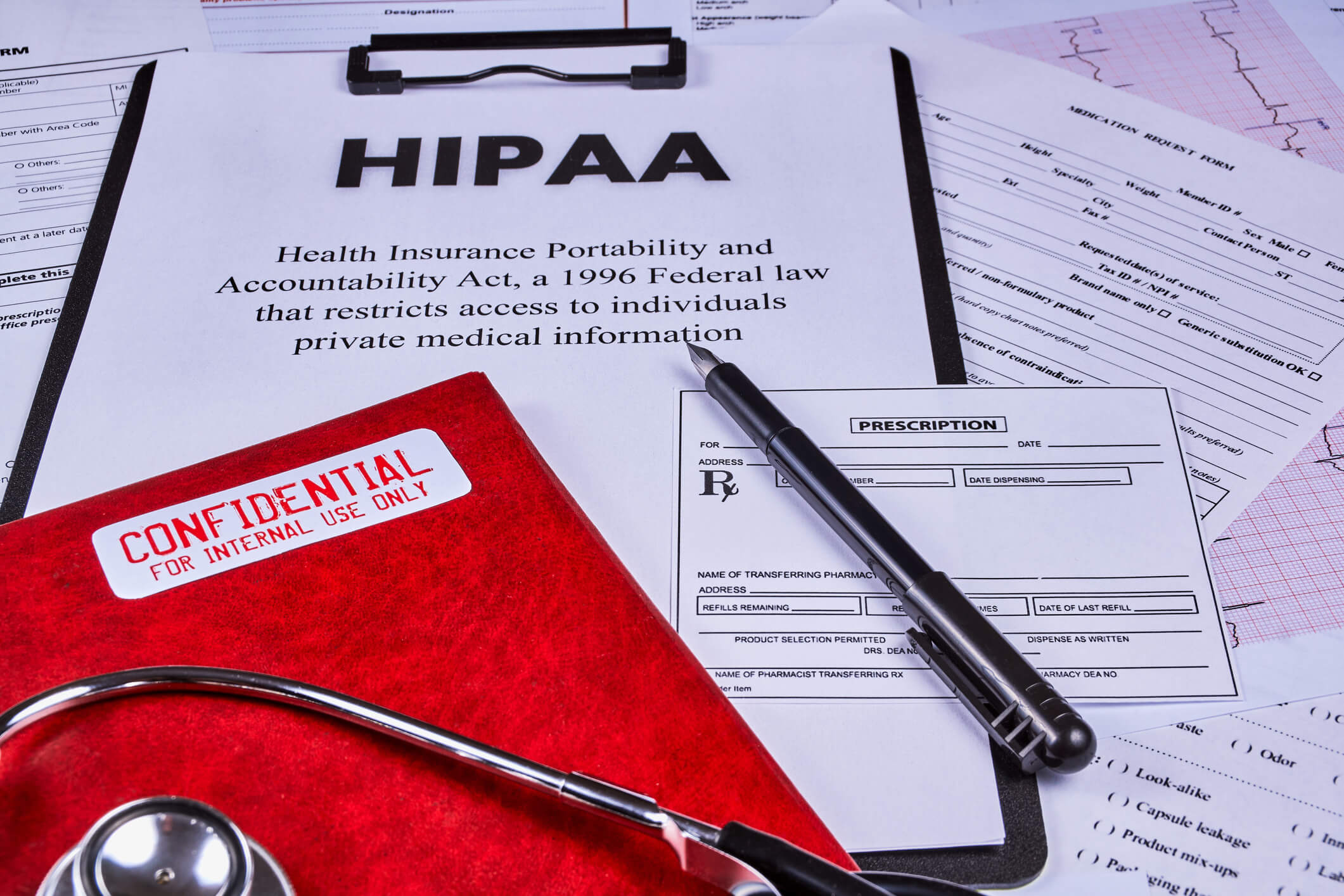The Health Insurance Portability and Accountability Act of 1996 (HIPAA) is a legislation of the United States that ensures data security of all medical information for individuals. Today, the top healthcare organizations’ concern is compliance with HIPAA (Healthcare Insurance Portability and Accountability Act of 1996).
HIPAA rules are meant to secure protected health information (PHI), whether electronic or manual. To achieve HIPAA compliance, healthcare institutes and professionals must follow guidelines that will ensure the security and protection of their patients. If you need clarification on the rules, engage the Chief Information Security Office for review.
 HIPAA Compliant – A Checklist
HIPAA Compliant – A Checklist
HIPAA rules and regulations have changed, causing healthcare organizations many challenges. Its complex language has often hindered organizations, making it hard to determine if their activities are appropriately maintained according to HIPAA compliance. Healthcare organizations must address some specific rules by HIPAA, which are as follows:
- HIPAA Privacy Rule
- HIPAA Security Rule
- HIPAA Enforcement Rule
- HIPAA Breach Notification Rule
HIPAA Privacy Rule
The HIPAA Privacy Rule ensures that an individual’s healthcare information is adequately protected, including all medical records and personal information (healthcare plans, insurance, and financial). The goal is to provide security while allowing secure access to healthcare practitioners without a patient’s authorization.
The rule is to balance the disclosure of information and protect an individual’s privacy. According to the HIPAA Privacy Rule, patients have full rights over their medical information, which means they can obtain their medical records or request a correction.
HIPAA Security Rule
The HIPAA Security Rule has set the national principles to safeguard the electronic health information of an individual as declared under the privacy rule. The Security Rule ensures the electronic PHI’s reliability, security, and confidentiality. Three types of safety measures fall under the HIPAA Security Rule: Physical protection, Technical protection, and Administrative protection.
Physical Protection
Limited Access to Facility – The organization must limit physical access to its amenities and ensure that only authorized personnel are allowed.
Workstation security is paramount; organizations must enforce stringent policies for electronic device use. Covered entities must document all hardware activities, tracking individuals responsible for data transfer or movement.
Technical Protection
Access Control is critical; organizations should permit access to electronic PHI solely for authorized personnel. Any removal from the system must undergo scrutiny, ensuring proper alteration or destruction.
Audit Control – All hardware and software activities must be recorded and examined, ensuring no data theft or misuse of the information. The organization is responsible for only authorized people having access to the information.
 Administrative Protection
Administrative Protection
Security Officials are essential; organizations should appoint dedicated personnel to enforce and implement e-PHI security policies and procedures.
Training Management is imperative; organizations must educate all employees on e-PHI security measures, emphasizing the consequences of policy violations.
Assessment is pivotal; organizations must regularly evaluate security measures, ensuring strict adherence to rules, minimizing e-PHI disclosure, and granting access solely to authorized personnel.
HIPAA Enforcement Rule
The HIPAA Enforcement Rule requires all healthcare organizations to enforce the Privacy Rule. If any organization fails to comply with HIPAA, it must face penalties. There are several ways the OCR implements the Privacy and Security Rules:
- Investigation of complaints
- Determining whether healthcare organizations comply with HIPAA
- Educate organizations and provide substitute compliance if required
HIPAA Breach Notification Rule
Any organization that allows disclosure of healthcare information without authorization, under any circumstances, will be convicted of violating HIPAA rules. The organization must notify the secretary immediately if it discovers an information breach.
 Conclusion
Conclusion
In conclusion, HIPAA (Health Insurance Portability and Accountability Act) safeguards individuals’ medical data. For healthcare organizations, compliance is paramount, and a comprehensive checklist outlines critical rules—Privacy, Security, Enforcement, and Breach Notification. The Privacy Rule ensures confidentiality, empowering patients with control over their information. The Security Rule sets national standards, emphasizing physical, technical, and administrative protections. The Enforcement Rule mandates compliance, with penalties for non-compliance. The Breach Notification Rule demands immediate reporting of unauthorized disclosures. Adhering to these guidelines is crucial for securing patient data and maintaining the integrity of healthcare practices.
 About Complete Controller® – America’s Bookkeeping Experts Complete Controller is the Nation’s Leader in virtual bookkeeping, providing service to businesses and households alike. Utilizing Complete Controller’s technology, clients gain access to a cloud platform where their QuickBooks™️ file, critical financial documents, and back-office tools are hosted in an efficient SSO environment. Complete Controller’s team of certified US-based accounting professionals provide bookkeeping, record storage, performance reporting, and controller services including training, cash-flow management, budgeting and forecasting, process and controls advisement, and bill-pay. With flat-rate service plans, Complete Controller is the most cost-effective expert accounting solution for business, family-office, trusts, and households of any size or complexity.
About Complete Controller® – America’s Bookkeeping Experts Complete Controller is the Nation’s Leader in virtual bookkeeping, providing service to businesses and households alike. Utilizing Complete Controller’s technology, clients gain access to a cloud platform where their QuickBooks™️ file, critical financial documents, and back-office tools are hosted in an efficient SSO environment. Complete Controller’s team of certified US-based accounting professionals provide bookkeeping, record storage, performance reporting, and controller services including training, cash-flow management, budgeting and forecasting, process and controls advisement, and bill-pay. With flat-rate service plans, Complete Controller is the most cost-effective expert accounting solution for business, family-office, trusts, and households of any size or complexity.



